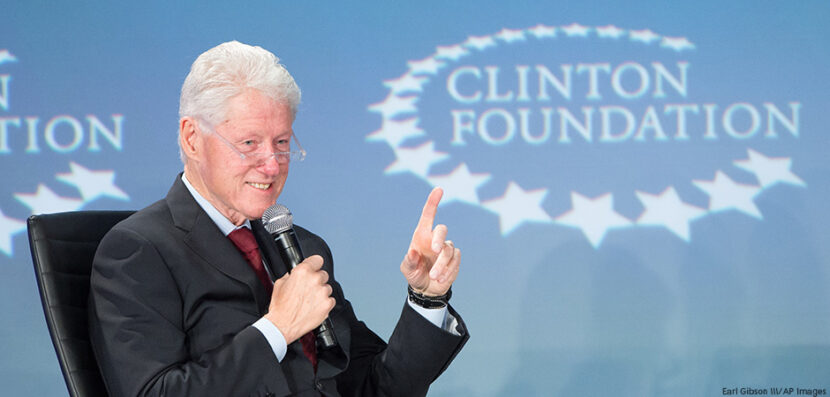
Information about the Clinton Foundation
In 1997, while still president of the United States, Bill Clinton created a charitable organization. Its original purpose was to fund raise for the establishment of his presidential library. (It is customary for outgoing U.S. presidents to create such an institution, located in his home state, as a place to house and organize the papers and artifacts of his administration.) That library-building organization has since evolved into a multi-billion dollar charitable foundation. The Clinton Foundation, however, has recently been the subject of intense scrutiny.
Work of the Foundation
After Mr. Clinton left office in 2001, the Clinton Foundation shifted its focus to charitable causes and officially changed its name to the Bill, Hillary and Chelsea Foundation. Unlike traditional private, personal endowments that raises funds and passes those funds along to other groups, the Clinton Foundation is considered an “operating foundation.” This means it conducts its own charitable activities. It has raised more than $2 billion and employs more than 2000 people.
The Foundation’s areas of focus generally fall into five categories—global health, economic development, climate change, girls and women, and health and wellness. Some of the Foundation’s current major initiatives focus on economic development in South America, reducing the cost of AIDS drugs for use in other parts of the world, earthquake relief in Haiti, and combating childhood obesity. A major initiative is the Global Clinton Initiative (CGI). Established in 2005, this annual conference brings together leaders in the areas of politics, business, media, and non-profit organizations to discuss potential solutions to international concerns.
The charity watchdog organization Charity Navigator has labeled the foundation as an “atypical business model that cannot be accurately captured in our current rating methodology.” Another watchdog, CharityWatch, on the other hand, gives the Clinton Foundation a solid “A,” noting that the foundation spends around 88 percent of its collected funds directly on such charitable efforts. The remaining 12 percent is spent on organizational overhead and daily operating expenses.
Controversy and Campaign Impact
The unique circumstances of the Clinton Foundation—an organization that accepts donations and is run by one former president and a former secretary of state/potential president—creates many possible conflict of interest situations. (This means that two parties doing business could either exert inappropriate influence or gain personal benefit from one another.)
When Mrs. Clinton accepted the job as President Obama’s secretary of state, she signed an “ethics agreement.” In it, she promised to remove herself from any state department matter that had direct effect on the Foundation. Despite this action, a recent story from the Associated Press reported that more than half of the meetings and calls during her tenure were with those who had donated to the Foundation. Representatives from the Clinton campaign say that these claims have been greatly exaggerated and that there has been no wrong-doing.
Last week, Bill Clinton announced that if his wife is elected president, he would suspend the Clinton Global Initiative meetings, stop giving paid speeches, and step down from the Foundation’s board. The Foundation will also no longer accept corporate or foreign donations. The Clinton’s daughter Chelsea, who reportedly played a major role in the Foundation during her mother’s final years in the State Department, will continue as the vice chair of the board or directors.


